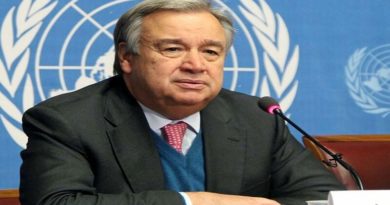Chile, Singapore showcase national emission reductions at Bonn talks
In a fifth round of the so-called “facilitative sharing of views” (FSV), Chile and Singapore presented their achievements and challenges in reducing greenhouse gas emissions at a special event during the 2018 UN Climate Change Conference in Bonn (to 10 May).
This is the second time that both countries have presented their emission reduction actions as part of the FSV, demonstrating progress, lessons learned, as well as improvements in their reporting of emission reductions.
Chile for example, highlighted the important lessons learned from its earlier participation to improve many aspects of the institutional arrangements needed for successful action and reporting.
Resulting from this, Chile improved its system to measure, report and verify emission reductions. This is important as it is also helping the country to be prepared for the transparency framework under the Paris Agreement.
The transparency framework is one of the items currently being negotiated as part of the implementation guidelines for the landmark 2015 agreement.
The guidelines are set to be finalized and adopted at the United Nations Climate Change Conference (COP24) to be held in Katowice, Poland in December 2018.
They are needed to unlock practical actions and to enable everyone to see how the Paris Agreement is being implemented by each individual country.
During the FSV, Chile also reported how it successfully responded to the need for greater engagement of public and private agencies to raise the profile of climate change and to promote climate action at the domestic level.
Additionally, Chile acknowledged the importance of the international support received to improve its systems, build capacity and achieve more in terms of implementation of actions to reduce emissions.
Singapore demonstrated its commitment with the global climate agenda through South-South cooperation. It supported other developing countries to improve their systems to measure, report and verify emission reductions.
Singapore also supported other developing countries to build capacity and promoted climate action by sharing successful examples of implemented actions.
Chile and Singapore’s engagement confirmed that timely reporting is possible, through good national coordination and/or with international support.
The workshop was fully inter-active and well attended. It gave a positive signal that the process is useful for showcasing the efforts of developing countries to design and implement emission reduction actions in line with their national circumstances.
The event was also important in the sense that it provided successful examples of international cooperation to overcome barriers and challenges.
The next round of the “facilitative sharing of views” will be conducted in December 2018, during SBI49.



